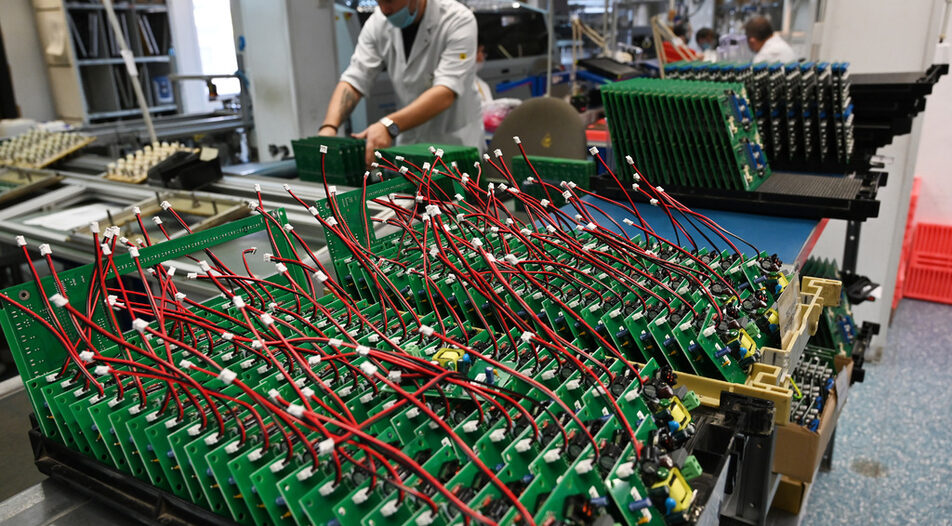In a year of shrunken investments, Teletek Electronics made a good exception and pressed on with its plans to build its own production facility. Set up 30 years ago and growing, the alarm system solutions designer and manufacturer had been long looking for an opportunity to expand. After it managed to buy a sufficiently large plot in Sofia in 2020, the company started a 25-million-lev investment in a new building. By this year's end it will move its entire production there and increase its capacity by 50%.
The business
Teletek Electronics, established in 1991 by Valentin Stoitsev and Petar Polileev as an installation service firm, gradually shifted to design and production of fire alarm and intruder alarm systems. A few years ago the company attracted a partner, Italy's Comelit Group, which progressively increased its shareholding until it became sole owner in 2019.
Currently Teletek Electronics exports some 95% of its output. Its products reach more than 80 countries all over the world except for North America, where the standards are different. CEO Mariela Madjarova says the main markets are in Europe but the company has strong positions in the Middle East, North Africa and Asia.
Finding the right place
The company, which is currently working in rented premises, first tried to buy land for a plant in 2006 but the deal failed. And this was good for Teletek, says Madjarova, because soon the financial crisis started. Finding a right place was not easy, as the company needed a large plot for its production. One of the options considered was the state-owned industrial zone in Bozhurishte, on the western outskirts oif Sofia.
"From the viewpoint of investment, that was the best place: it was cheaper and came in a package with other advantages provided by the state. But the big question was how to make our employees travel every day to work," she explained. Finally, Madjarova managed to convince the Italian owners that the company should invest more money but keep its staff.
In March 2020 Teletek Electronics struck a deal to buy 1.8 ha of land in Sofia. Construction of the plant has now started and the company expects to start production in the new premises by the end of 2022. The project includes a 3,340 sq m production building, a 2,100 sq m warehouse facility, and offices.
Expansion
In addition to moving the existing equipment, Teletek Electronics has already ordered new machines, which will increase its capacity by at least 50% for now. "There is enough space there. The building is so designed as to meet our development plans for the next 10 years," Madjarova said.
Out of the total investment of some 25 million levs in the project, 10 million euro is provided by the Fund for Sustainable Urban Development through its partner United Bulgarian Bank. The remainder is provided by the company itself.
The new plant is not expected to lead to a considerable staff increase at Teletek. "Our aim is to automate production as much as possible, because human resource is a problem," Madjarova said.
Demand for the company's products remains strong. Turnover has been growing steadily, except for a drop of 5% in the crisis 2020. The big unknown for now are the supply chains, as the company is dependent on the supply of components. Nevertheless, Madjarova expects that the shortage will be solved by this year's end, as a lot of new factories are being built.
In a year of shrunken investments, Teletek Electronics made a good exception and pressed on with its plans to build its own production facility. Set up 30 years ago and growing, the alarm system solutions designer and manufacturer had been long looking for an opportunity to expand. After it managed to buy a sufficiently large plot in Sofia in 2020, the company started a 25-million-lev investment in a new building. By this year's end it will move its entire production there and increase its capacity by 50%.












